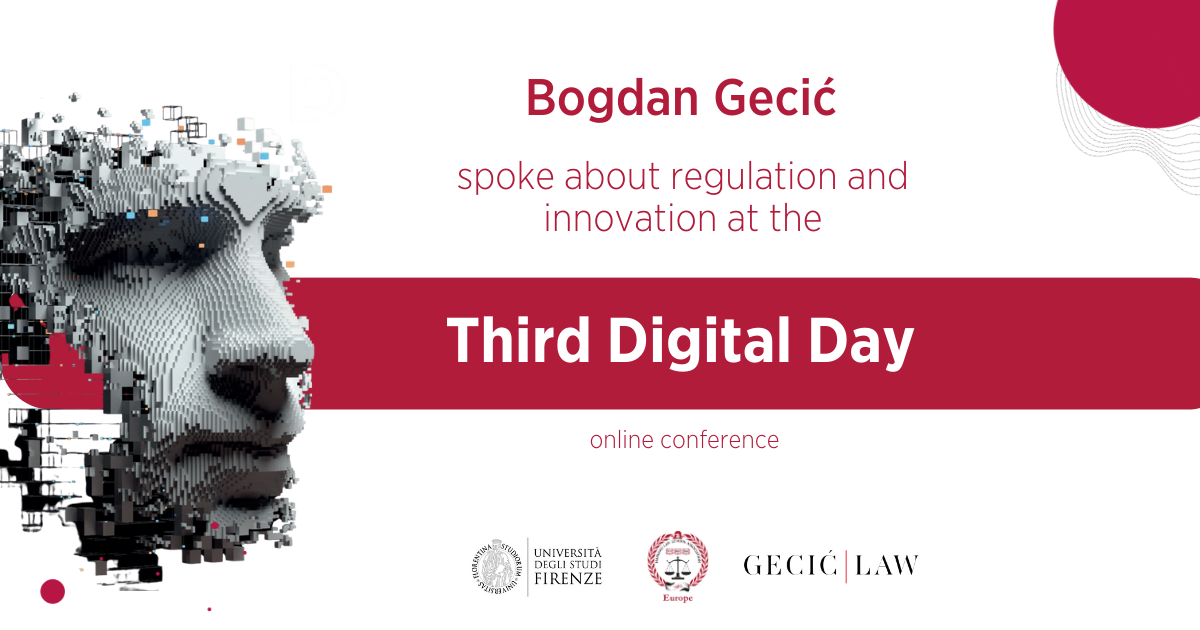

Our Founding Partner, Bogdan Gecić, spoke on Friday at the Third Digital Day online conference organized by Universita Degli Studi Firenze for the third consecutive year on March 10-11, titled “At the Roots of Digitalization: A New or Renewed World.”
Bogdan was honored to speak at the opening session of the first day dedicated to regulation in the digital field, moderated by Professor Alessandro Luciano of the Universita Degli Studi Firenze. Carmelo Barbagallo of the Autorita di Supervisione e Informazione Finanziaria, ASIF of the Vatican City delivered the introductory remarks to the session. Insightful presentations were delivered by illustrious speakers covering a broad range of topics, including copyright protection, crypto assets, and the responsibilities of the legal profession in the digital age.
In his presentation, titled “Digital Regulation (Un)locking Innovation”, Bogdan reflected on the new EU digital regulation and its potential effects on competition and innovation. Gecić juxtaposed examples of the development of tech companies in the US and the EU, illustrative of the different approaches to the digital economy in these jurisdictions. He noted that while the US has taken a more proactive stance towards promoting investment in the industry, the EU has chosen a path of developing regulation to promote competition and innovation. Bogdan discussed the potential effects of both approaches, especially in the context of increasing efforts of leading global economies to attract investment and development in the field.
Bogdan also discussed the potential impact of the new EU digital regulation. He highlighted the need for flexible, balanced, and dynamic rules that protect the interests of both consumers and businesses of all sizes, a prerequisite for promoting investment in the industry to foster economic growth. A lively discussion followed during the Q&A session, particularly regarding the numerous factors that may have affected these discrepancies and the potential effect of regulation alone.